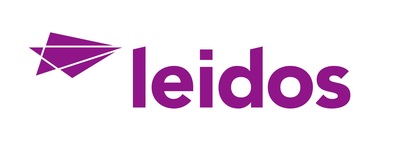Leidos-designed low-profile vessels participate in U.S. Army's Project Convergence Capstone 4 exercise
"Leidos once again designed and delivered innovative solutions with these LPVs, and it was great to see them participate in Project Convergence," said Dave Lewis, Leidos senior vice president, Sea Systems Business Area. "The prototypes we've delivered will help create new disruptive logistics capabilities for the Marine Corps. Its low profile and long range are intended to help the vessels achieve a higher mission success rate supporting dispersed Marine fire units than conventional methods."
The LPV's low-to-the-water visual profile helps to reduce probability of detection. The vessels are intended to transport a logistics payload of up to five tons over a range of 2,000 nautical miles, and have been built to experiment with different autonomous control systems. The two LPV prototypes were delivered last year to the Marine Corps Warfighting Laboratory for testing and technical assessment. Their participation in the joint and multi-national Project Convergence Capstone 4 exercises represents the next stage of testing and experimentation with the vessels' capabilities alongside warfighters.
Leidos designed the LPVs under contract with MilTech, a Montana State University research lab and an authorized National Government Partnership Intermediary.
The delivery of the LPV prototypes complements Leidos' extensive maritime autonomy portfolio. Leidos-designed and built autonomous vessels recently completed joint naval exercises in the western Pacific as part of the Navy's Integrated Battle Problem 23.2. Last year, Leidos was awarded a
About Leidos
Leidos is a Fortune 500® innovation company rapidly addressing the world's most vexing challenges in national security and health. The company's global workforce of 47,000 collaborates to create smarter technology solutions for customers in heavily regulated industries. Headquartered in
Certain statements in this announcement constitute "forward-looking statements" within the meaning of the rules and regulations of the
Contact: | Melissa Dueñas |
(571) 526-6850 | |
Alyssa Pettus | |
(571) 526-6743 | |
Brandon VerVelde | |
(571) 526-6257 | |
![]() View original content to download multimedia:https://www.prnewswire.com/news-releases/leidos-designed-low-profile-vessels-participate-in-us-armys-project-convergence-capstone-4-exercise-302103012.html
View original content to download multimedia:https://www.prnewswire.com/news-releases/leidos-designed-low-profile-vessels-participate-in-us-armys-project-convergence-capstone-4-exercise-302103012.html
SOURCE Leidos Holdings, Inc.









